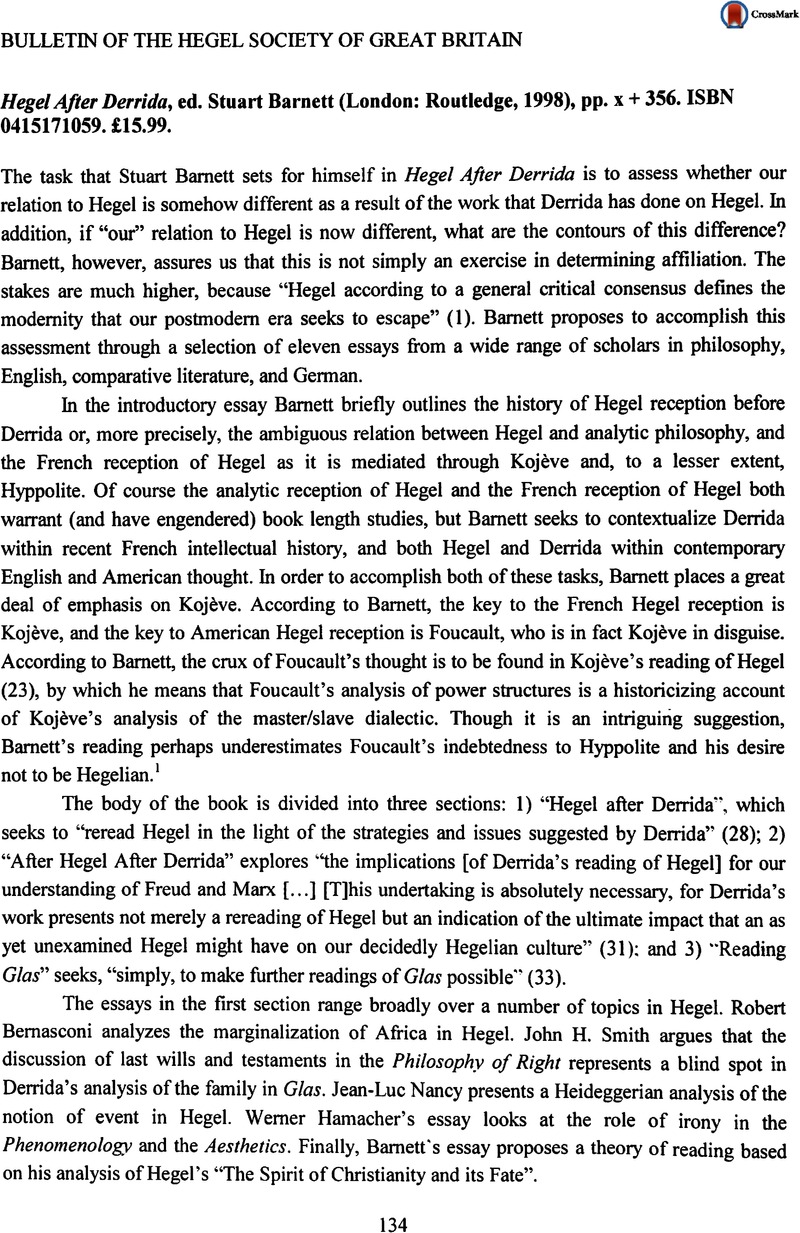No CrossRef data available.
Published online by Cambridge University Press: 23 June 2015

1 I am referring, here, to the oft-quoted passage from The Discourse on Language in which Foucault articulates his anti-Hegelianism, and his fear that his “anti-Hegelianism is possibly one of [Hegel's] tricks directed against us, at the end of which he stands, motionless, waiting for us”. It is also interesting to note in this context that Foucault gives Hyppolite the credit for understanding Hegel and providing a means to escape Hegel. It seems like any analysis of Foucault's mediation of the American reception of Hegel would have to account for Foucault's explicit anti-Hegelianism. See The Archaeology of Knowledge, tr. by Smith, A.M. Sheridan (New York: Pantheon Books, 1972), 234 Google Scholar.
2 Derrida, , Positions, tr. by Bass, Alan (Chicago: University of Chicago Press, 1981), 44 Google Scholar.